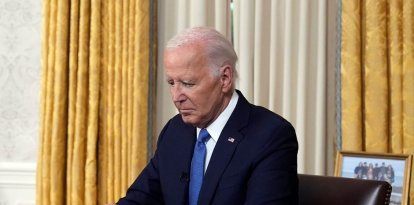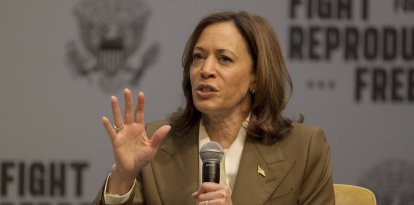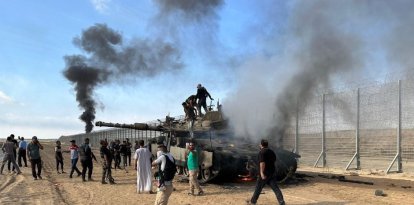Iraq: 20 years since the controversial war
The campaign to take down Saddam Hussein drove a deep wedge between the United States and the core of Europe.
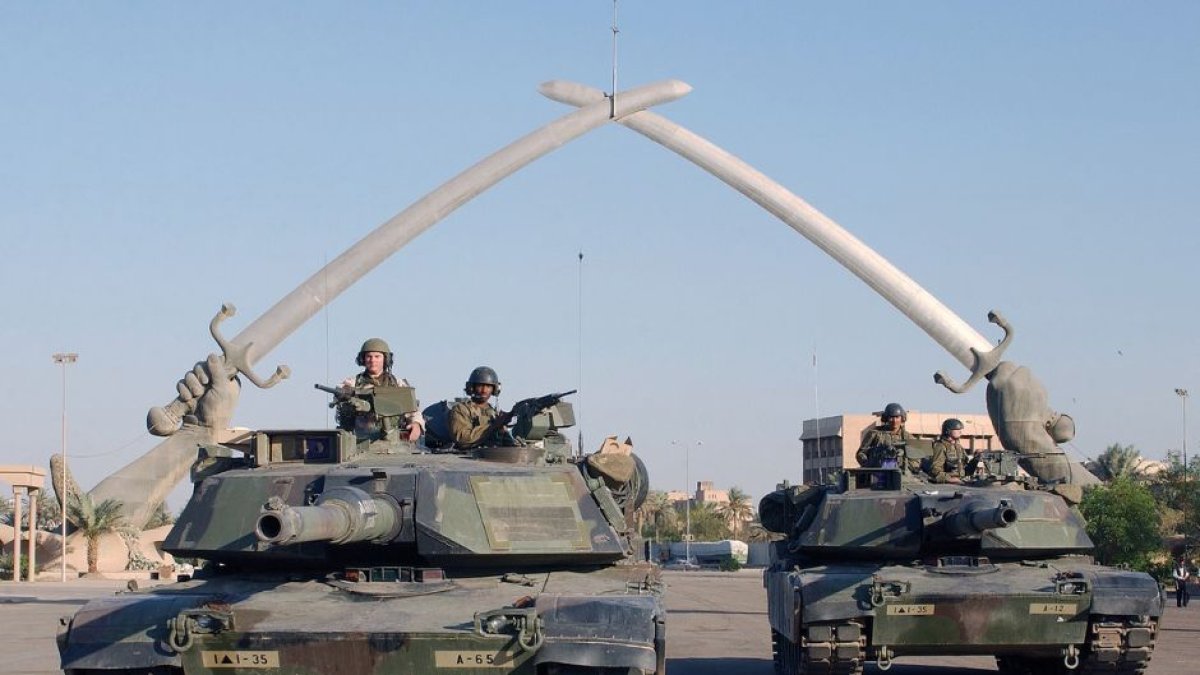
( Creative Commons / John L. Houghton )
It has been 20 years since the start of the Iraq war, the last large-scale invasion carried out by the United States. At the head of an international coalition, President Bush launched his war against terror. It came 12 years after his father intervened in the region in response to the Iraqi invasion of Kuwait. Twenty years after the historical event, public opinion has evolved to condemn the conflict.
Coinciding with this twentieth anniversary of the war, the Senate voted to repeal the laws that allowed armed action in Iraq and covered Operation Desert Storm in 1991 and Iraqi Freedom in 2003. The Senate initiative was endorsed by President Biden, who promised to sign the changes into law if approved. With 68 senators in favor of voting to repeal these laws, Congress is looking back on the past and definitively closing this chapter of history.
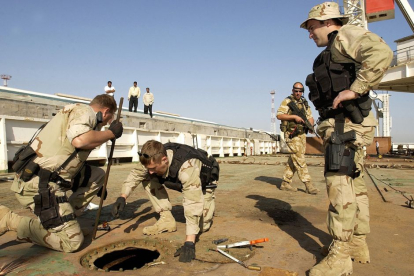
Operators search for smuggled crude oil during the invasion of Iraq.
'Shock and Awe'
Prior to the invasion, President Bush secured sufficient congressional support by claiming that Saddam Hussein's dictatorial regime was in possession of weapons of mass destruction. In a world marked by the tragedy of 9/11, the threat of the Hussein regime, which had a belligerent dialectic towards the US because of the international response to its invasion of Kuwait and hindered the work of international peace observers, was enough to launch the invasion.
"Shock and Awe" was the base concept of the war strategy. The invasion of the country had to be carried out quickly and forcefully. Seize the capital, overthrow Saddam's regime and secure the country's key resources and infrastructure before embarking on a democratization process. The reality was much more complex. The war was met with strong international opposition when the Bush Administration failed to prove its allegations that the Iraqi government had weapons of mass destruction in their possession. In 2004, the United Nations, with then Kofi Annan at the head of its General Secretariat, ended up condemning the invasion of Iraq and declaring it against international statutes.
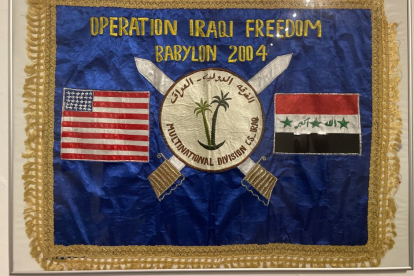
Flag commemorating the invasion of Iraq.
The conflict ended up getting worse as did the regional stability of the Middle East. Once the invasion of Iraq was over, the war against the Islamist groups that multiplied in a country ravaged by the conflict took over. The rapid 'shock and awe' offensive turned into a long campaign that lasted until 2011, along with the intervention in Afghanistan.
America was in favor of the war in 2003
In the United States, opinions about the war became progressively divided. Initially, the Bush Administration was able to control support among public opinions and Congress. Little by little they began to divide. Tucker Carlson himself admitted that he regrets not having been more skeptical of the invasion in the past.
A 2002 Pew Research Center (PRC) survey indicates that 77% of Americans believed that the Hussein regime had weapons of mass destruction in its possession. An overwhelming 83% felt that Iraq helped the terrorists in the 9/11 attack. A resounding 75% believed Saddam Hussein's government harbored terrorist organizations. In 2019, another survey by the same group revealed that 62% of American adults believed the invasion was not worth it. The figure rises to 64% for war veterans.
The costs of war
As the war in Iraq progressed, public support plummeted as casualties rose. Support went from 71% among Republican voters to 40% in 2008, marking a more than 30-point drop in just five years. The invasion of Iraq left 4,491 U.S. military casualties, the highest number of all coalition countries. There were over 32,000 injured.
The economic cost of the war was also high. The Congressional Budget Office (CBO) estimates that spending related to the war in Iraq totaled as much as $2.4 trillion. Spending skyrocketed after the invasion ended, especially beginning in 2012, with peak spending in 2015. We now know that the stabilization phase of the country and the war against the Islamic State were the most expensive for the then first Obama Administration.
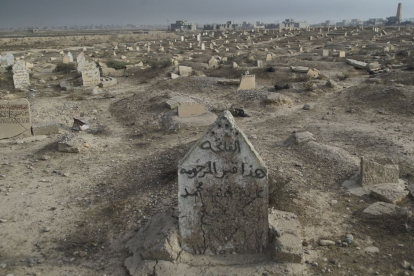
Muslim cemetery in Mosul, Iraq.
Iraq without Saddam
As U.S. forces withdrew from the country, training missions from the European Union, NATO and the United Nations arrived. The country is now trying to get back on its feet after a turbulent episode of political deadlock that prevented a government from being formed. The Shiite cleric, Muqtada Al-Sadr, won the elections but without the necessary support to become head of government. After months of negotiations, he left the presidency to the former minister close to Iran, Al-Sudani, who has governed the country since October. Without sufficient energy infrastructure, and with little independence from Iran, Iraq now faces the challenge of rising from the ashes of nearly two decades of conflict.













